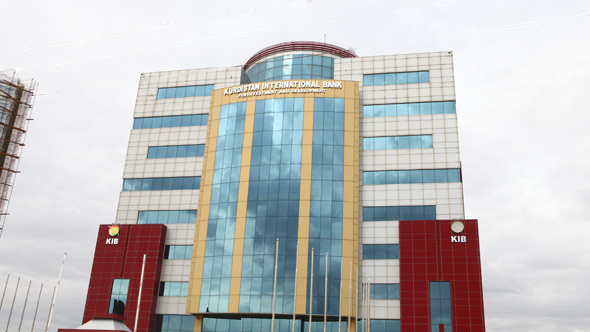Islamic Banking in Iraq: A Growing Niche
As for Halal banking (Islamic Banking and Finance), We see prospectus for emergence and growth of Islamic finance and banking in Kurdistan in as much as the state is part of the larger Muslim MENA countries.

By TK Maloy
On the religious issue, the majority of Kurdistan’s citizens are Muslims and it is forbidden under Islamic codes to gain interest on money deposited in banks. Halal banking has staked out a popular niche for the more devout.
Islamic banking expert Adnan Halawi, an analyst with the Zawya information service, said “As for Halal banking (Islamic Banking and Finance), We see prospectus for emergence and growth of Islamic finance and banking in Kurdistan in as much as the state is part of the larger Muslim MENA countries.
Just recently, Turkey started selling sukuk and we are witnessing increased role for Islamic banks and insurance companies there.”
Halawi added, “We see no reason why this would not follow in Kurdistan, but probably not very soon, due to the legislation and regulatory framework required for that.”
There are currently 11 Islamic banks operating in Iraq. According to a World Bank statement from 2010, “the Islamic banking activities in Iraq started in 1993, where the Iraqi Islamic Bank for Investment and Development was established as the first Iraqi Islamic bank.”
Islamic banks (in Iraq) now have 83 branches and 1504 employees, with the ratio of branches and employees of the Islamic banks to that of all private banks being broadly similar at 19 percent and 17 percent.
Marcopolis.net explains in a short report that Islamic banks offer the following products: Murabaha (Profit-sharing); Musharakah (joint ventures); Mudarabah (Financing); Ijara (Renting); Istisnaa (Industrial – Financing); and Assets and Liquidity Management. In general, financing is of longer term than that of other private commercial banks. Most financial ratios and earnings performance are broadly similar to those of other private commercial banks.
However, the report notes, “in general Islamic banks rely more on capital and reserves as a funding source than do other private banks (and much more so than the State owned banks).”
The Islamic banks face some challenges in working without specific Islamic banking law and regulations except the internal instructions that were issued in 2006. Also, there is a shortage of qualified people who understand Islamic banking practices not only in the banks but also in the CBI.
Two of the top Islamic banks in the Kurdistan region are theKurdistan International Bank for Investment & Development and the ![]() Al-Baraka Turkatilim Bankasi A.S., both in Erbil.
Al-Baraka Turkatilim Bankasi A.S., both in Erbil.